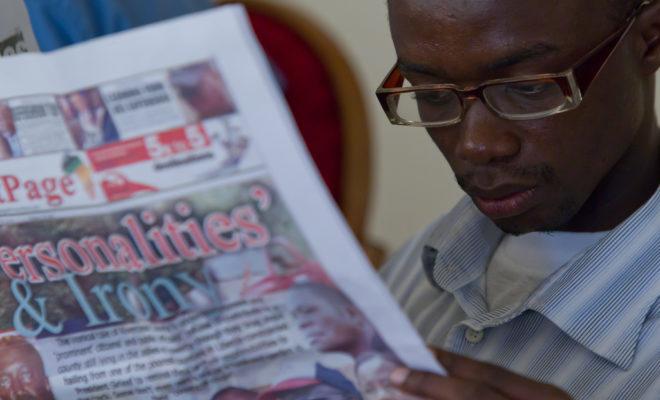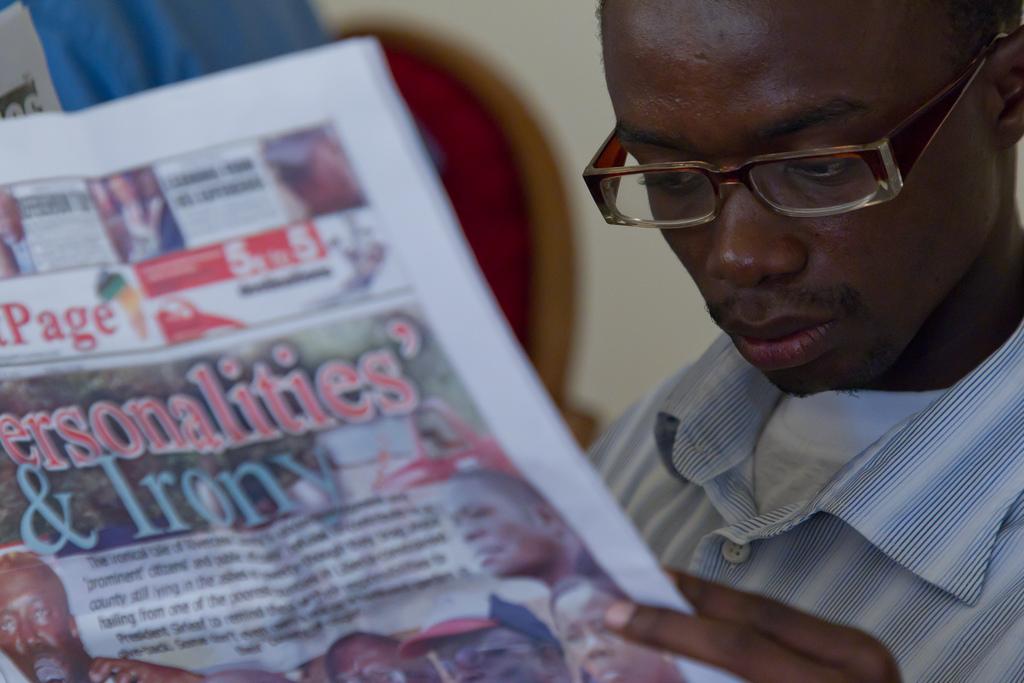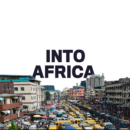Transforming Liberia’s media: Time to pay our own “transport costs”

Spelling errors, lack of independence, and “stipends” for covering events are commonplace in Liberia’s media. We decided to do something about it.

On a rainy day in August 2015, a delegation from the World Trade Organisation travelled to Monrovia to discuss Liberia’s inclusion in the body. The country’s 14-year civil war, which ended in 2003, had previously all but guaranteed its exclusion.
I was one of the journalists present in the packed room to learn about the implications of Liberia’s membership.
After the press conference, the Minister of Commerce and guests departed, leaving just members of the media and a ministry employee. As I packed my equipment, the official retrieved a large bag and journalists began to circle him. The government employee distributed wads of cash to the reporters, who eagerly accepted.
I asked one of the reporters what was going on. The Ministry was helping them cover the costs of their transportation, he told me. Each journalist received about $30, equivalent to around a fifth of some of their monthly salaries. Travel to the event should have reasonably cost no more than $5.
I prodded the journalist: “Don’t you feel that this is a conflict of interest?” He assured me he did not. He explained that the money was to help mitigate the low pay that many members of the press receive from their employers. Receiving hand-outs here and there was a way to make ends meet.
That press conference was not the last time I would see this “benevolence” on display. In fact, the practice occurs so often that it has come to be expected. I’ve been offered “transportation fare” at the Ministry of Education, while colleagues have been offered the same from many other government agencies.
There are even several international donors and NGOs that engage in the practice to ensure coverage of their events. This undermines the very accountability they suggest they are trying to build.
The skills gap
Abysmally low pay encourages writers to sell themselves to the highest bidder and undermines journalistic independence and impartiality. But this is just one problem in the Liberian media.
The general quality of writing is also poor. In their recent coverage of debates around modifying the constitution to make Liberia a Christian nation, for example, four top newspapers used the word “circular” when they meant “secular”.
This skills gap arises partly from the fact that those with most talent simply move into more lucrative fields, for example as communications specialists for donor agencies or companies.
Lack of money also means that rural parts of the country are widely ignored due to the logistical costs involved. Amongst other things, this means that tensions in areas where much of Liberia’s natural resources lie do not gain nationwide attention until they boil over into conflicts or riots.
Leading by example
All of this is unacceptable. That’s why I left my well-paying IT job in Washington DC two years ago to return to Liberia to help transform the media. Along with a team of like-minded individuals, we recruited 21 journalists for a nine-month fellowship and eventually hired four to work with us permanently. We called our outfit The Bush Chicken, an eye-catching name meant to represent our focus on rural Liberia.
We feel it is only through leading by example that things can change, and we hold ourselves to the highest international standards. Unlike many Liberian media outlets, we do not accept plagiarism and regularly screen all articles to ensure originality.
We refuse pieces that are not balanced or well-documented, and we ensure we have permission to use images we publish. All of our work is packaged on a clean and accessible website. This may all sound unremarkable for international readers, but in Liberia this is unique. Earlier this year, we won five of the twelve awards given out by the Press Union of Liberia, the most of any news outlet in the country.
The reality, however, is that our work is in jeopardy if we cannot ensure our reporters can earn a living wage doing honest and ethical work. There are significant constraints for journalists that make accepting side payments a decision of necessity rather than morals.
This is why we are focused on building an organisation that can create revenue to ensure sustainability. Amongst other income-generating ventures, we plan to print newspapers soon to increase advertising revenue and reach more people.
If we can reimagine what is possible with the media in Liberia and show we can set new levels in terms of professionalism and engagement, we can move beyond the current challenges. Soon, we hope, there will be no need for undocumented cash payments to journalists from paper bags.







An open critical robust media independent from any external intimidation and/or monetary suasion is essential if the media is to participate prescriptively in the social political conversation in the advancement of sound ‘publics’, as all societies to function properly require an open critical media, independent.
However, I am most sympathetic to the plight media encounters in emerging states as resources are scarce in being able to sustain media as in paid public advertising and other commercial related sponsorship in hopes of targeting the peoples who read, listen or view media in purchasing the product being offered.
Unfortunately, there exists no easy or quick fix.
My only suggestion would be that these journalists make clear that their personal professional integrity in speaking ‘truth to power’ is not for negotiation as civics in prescriptive engagement of society to and from the leadership class is important as the unvarnished facts must be made clear to all allowing the public to make an informed choice based on the information provided.
As Liberia strengthens in becoming an economic nation prosperous, an engaged pluralist public media will be more crucial in the assurance of openness in governance.
My sympathies are with all those men and women who decide to pursue journalism and I encourage you all to maintain a sense of dignity concomitant with ethical professional integrity.
FYI, I spent 4 years in Liberia under the aegis of UNMIL and USAID in the promotion of good civics.
Good piece, lead and others will follow